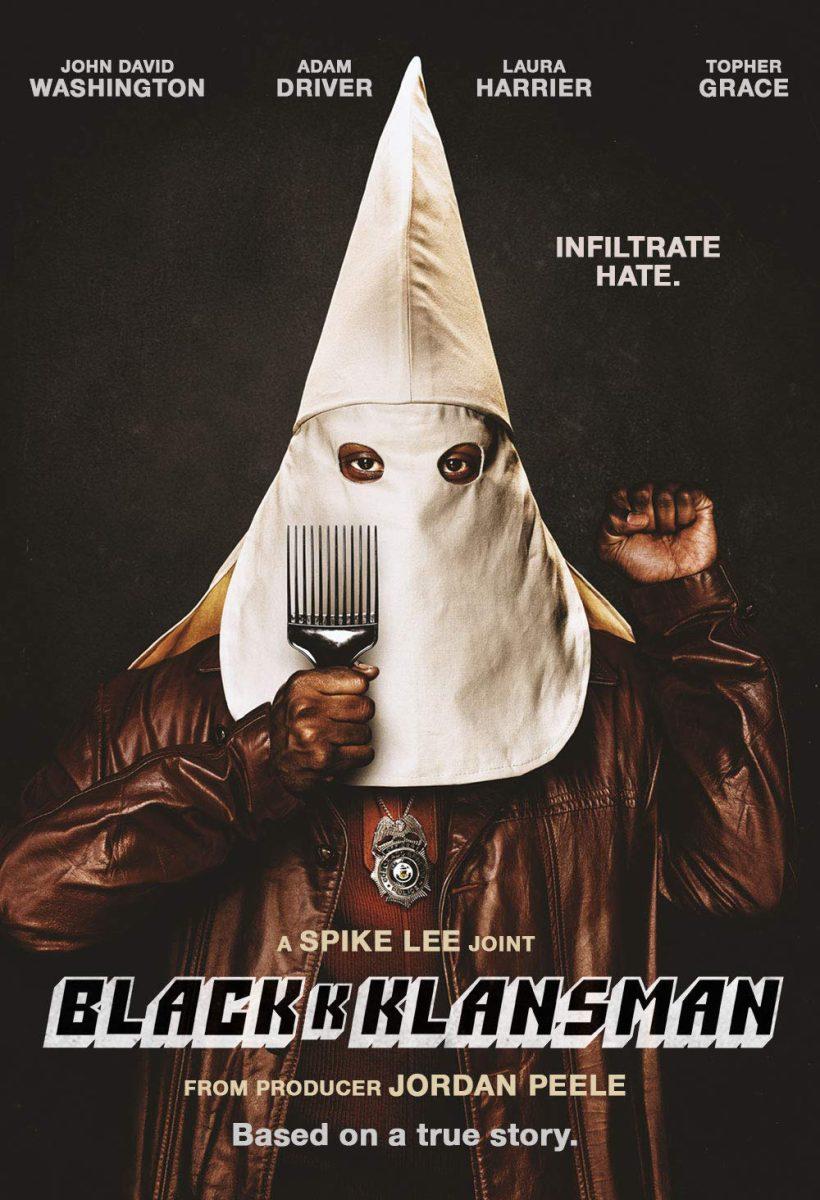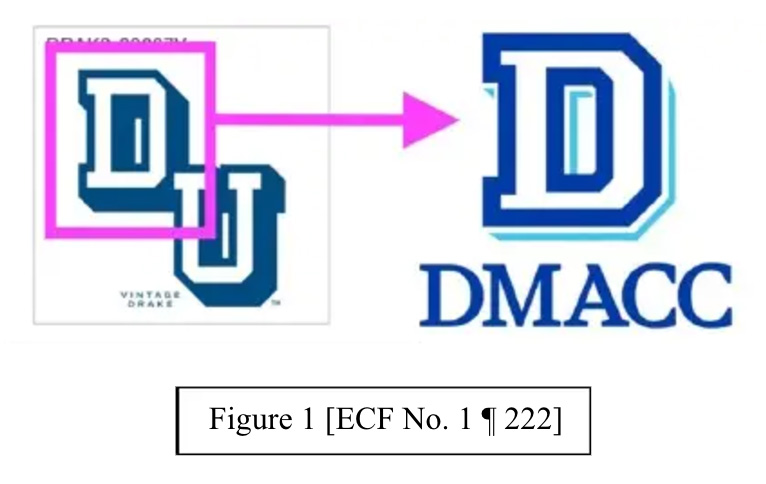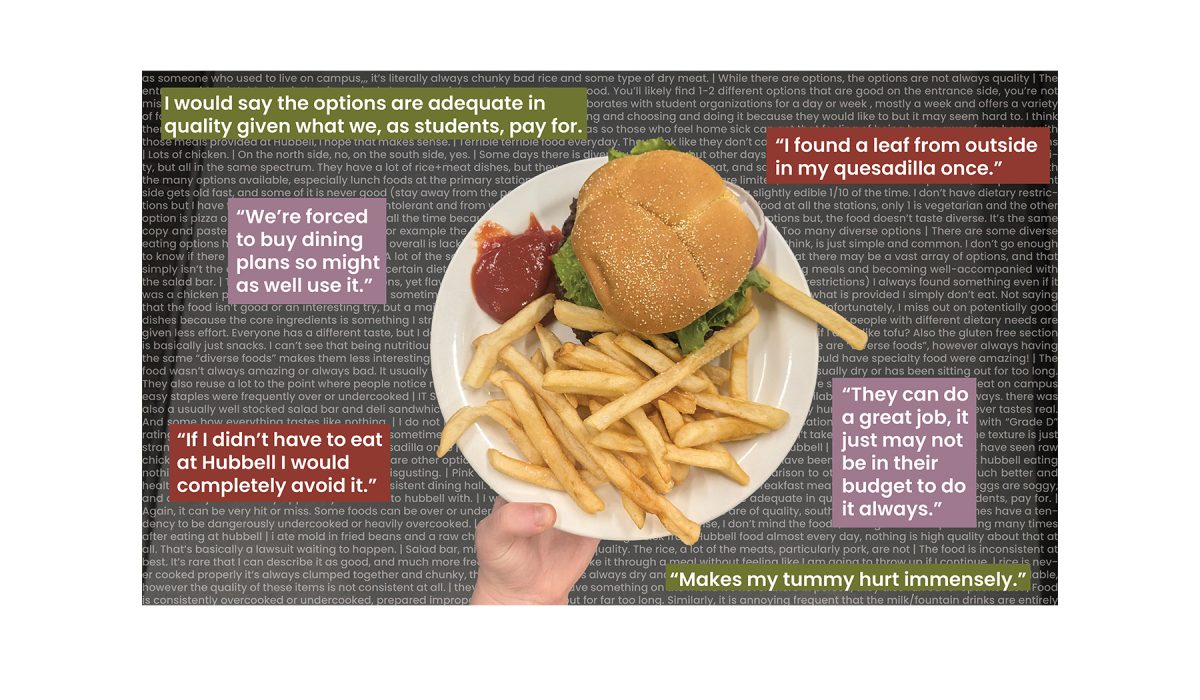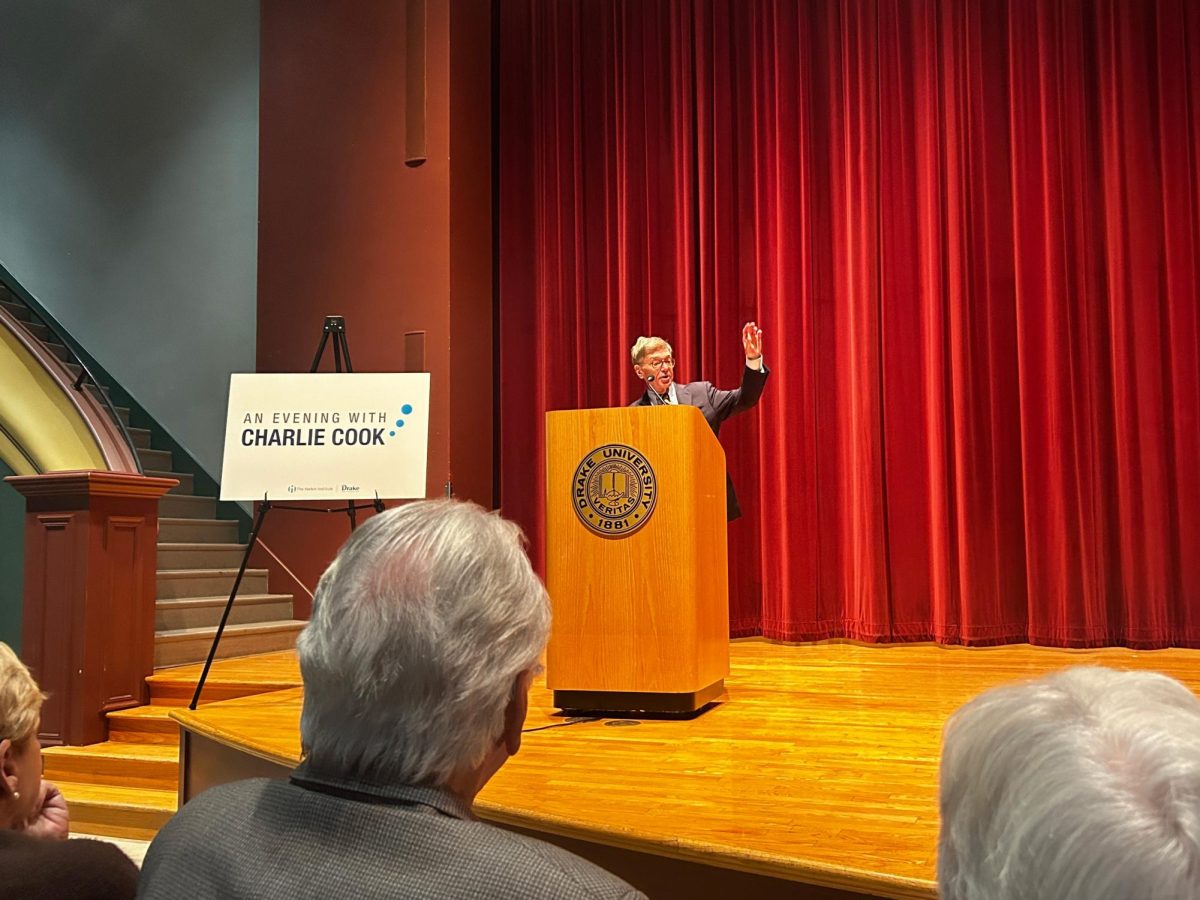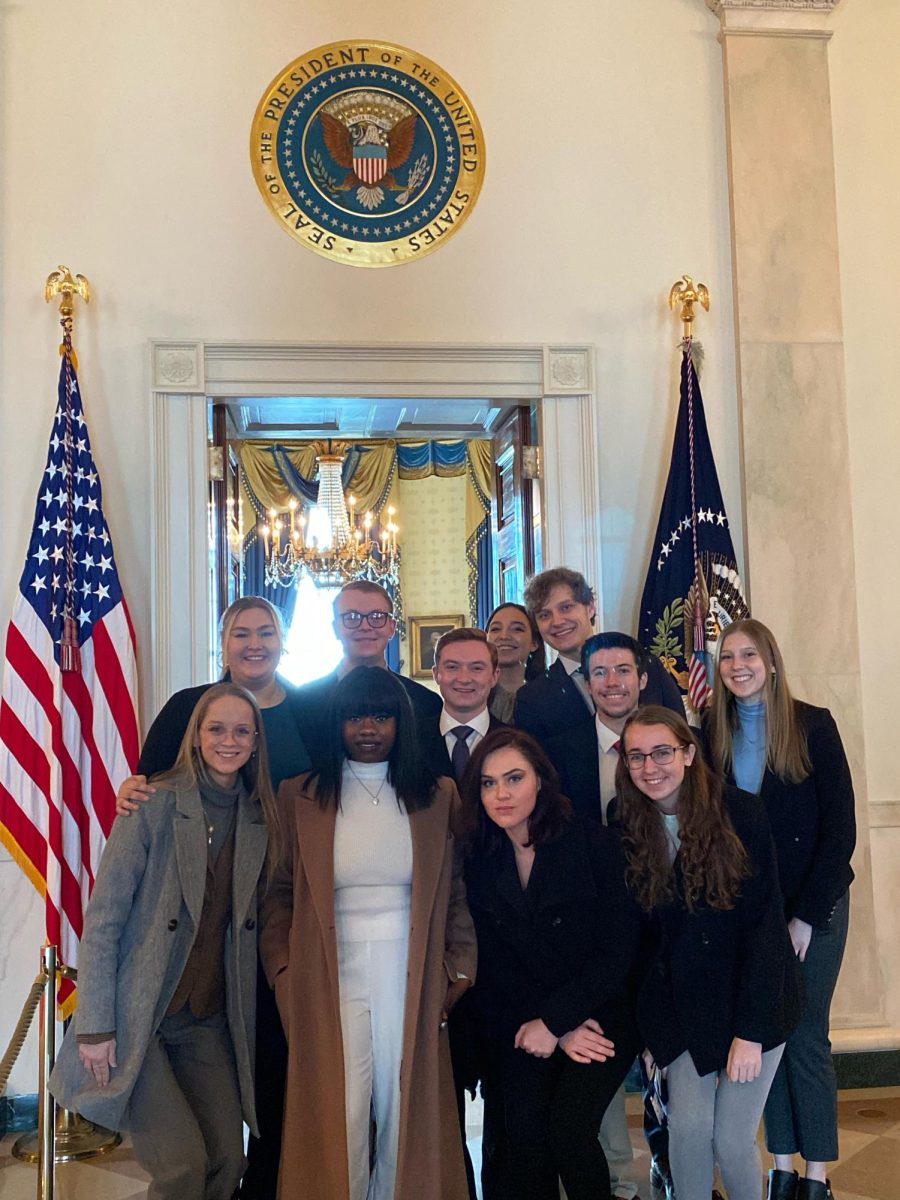BY: ABBY WALLNER
Released on August 10th, the anniversary of the “Unite the Right” rally in Charlottesville, Virginia, BlackkKlansman is a masterfully woven story about politics, racism, activism and an ideology that may have evolved but has not vanished from American culture. From the production team that gave us the wildly timely movie Get Out, comes another film addressing hard hitting topics that no one wants to discuss at a time when it is necessary to discuss them. A passionate, truth driven story, BlackkKlansman is aware of the comedic elements it presents, but also provides a massive wake-up call. As hard as this movie is to watch, it’s impossible to look away. The fervor of both the director and cast is undeniable.
The movie is based on real life Colorado Springs policeman, Ron Stallworth, who really did infiltrate the local chapter of the Ku Klux Klan in the late 1970’s. Ron was the first black detective on the police force in Colorado Springs. He spoke with local klansmen and Grand Wizard David Duke several times over the phone with a white officer assuming his role in person. He convinced the active members that he was a good candidate for the group and to this day still has his membership card from 1979. Due to his work, the police force was able to stop several cross burnings and expose several active Klan members.
When asked who should portray him in the film, Ron said he would like it to be Denzel Washington, however, the production team figured Denzel was a bit too old, so the role was ultimately played by John David Washington, who just happens to be Denzel’s son. Delivering an awkward, but believable performance, John David gives Ron a personality that the audience can sympathize with. He is likeable and it is relatively effortless understanding his motives.
Adam Driver has moved on from his villainous role of Kylo Ren, to the complex character of Flip Zimmerman, the white officer who posed as Ron when meeting with local Klansman from the Colorado Springs chapter. Throughout the film, he struggles with his identity as a Jewish male, with a magnificent subtlety. His acting is not overdone, but remarkably realistic as he tackles an inner conflict, but chooses to remain in the investigation to assist the greater good rather than act out of self-interest.
The acting of Topher Grace and Jasper Pääkkönen is admirable, as the two take on incredibly challenging characters. The men use their skills to portray characters filled with malice and a complete lack of tolerance. The believability of these two men is as heartbreaking as it is impressive. Creating the smiling faces of racism could not have been easy, but Grace and Pääkkönen make these men come to life and bring a sinking feeling to my heart time and time again throughout the film.
Acting aside, the film is brilliantly crafted. Camera angles are creative and stylized. I felt transported into another decade as the films scenes are consistent in speech patterns, lighting, costuming and of course, music. The music in this film is composed by Terence Hartford and gave me goosebumps more times than I could count. The film score could not have been a better fit. Each chord emphasizes the scene, and captivates the audience even further.
However, the true purpose of the film was to iterate that, to this day, not much has changed in our country. White supremacists may not wear sheets covering their heads anymore, but they walk around with torches and pitchforks just the same. Our country has evolved, but racism is still alive and in forty years, not enough progress has been made. The final scene pulls videos from last year’s rally ending in the tragic death of a young woman fighting for equal rights. This movie is a reminder that our country is still plagued with division and violence. I highly encourage everyone to take a few hours to see the film that evoked both thunderous applause and plenty of tears with the rolling of the credits.

